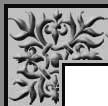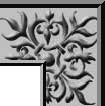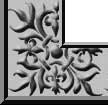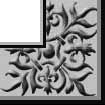

INDEX
Reading Revolutions: Intellectual History Lecture Series
The following lectures were part of an event based on a collection of over 40 rare and first editions from the Remnant Trust focused on the writers who have had great impact on our ideas of science, government, and social standards. If you click on the title of a presentation you will reach either a paper written by the author or a paper written based on their talk by a student or myself. More photographs of the books and background information are available under the Alphabetical List.
Origins of the Scientific Worldview:
"Euclid's Elements and the Declaration of Independence"
Michael Molinsky
Euclid's Elements is one of the most influential works in history. It set a standard of formal logic, proof and reasoning that was emulated not only in mathematics but also in science, philosophy and even politics. This talk offered a brief summary of the Elements and offer one example of its influence by examining the Declaration of Independence.
"What We Have Here is a Failure to Communicate: Galileo and the Church"
Christopher Magri
Everyone knows that Galileo correctly divined how the planets move and that a tyrannical Church tried to crush him. Everyone is wrong. Why did his Dialogue Concerning the Two Chief World Systems, a book containing untruths and partial truths, set off a revolution in how to seek scientific truth? Is there in fact a conflict between science and faith? How did Galileo reach back to the past, to Pythagoras and Euclid, to set the stage for the future triumphs of Newton and Einstein?
"Newton: Planets, Apples, and Scientific Revolution"
Theo Kalikow
We all know the name of Sir Isaac Newton, but why? What was he doing under that apple tree? Why was his Mathematical Principles of Natural Philosophy a revolutionary text? What was the revolution about? Is the revolution still going on? Why does a book published in 1689 still matter today?
"Hobbesian Science"
Frank Underkuffler
Leviathan is well known for Hobbes's theory of the state, which was revolutionary is its substitution of the people in place of God as the ultimate source of political power. By banishing God from government, Hobbes accelerated the separation of state from church, with significant long-term consequences for Western governments. Perhaps more significantly, Hobbes was one of a handful of "enlighteners" who transformed the medieval world into the modern world. Science could not have become the full-blown ideological alternative to religion it became without Hobbes's contributions. Surprisingly, of the four pillars of so-called Newtonian science - modern empiricism, modern materialism, the scientific/causal theory of perception, and universal causal determinism - Hobbes, not Newton, invented three and a half. And without Hobbes, there could have been no Darwin. How could Hobbes be among the very greatest of scientists?
Reformation, Renaissance, Political Theory, Education, & Feminism:
Michele de Montaigne, a French nobleman of the 16th Century, is regarded by some as "the greatest essayist who ever lived." Others see him as the "father of the personal essay," the inventor of a way of writing about the self that, until his time, had never occurred. Why were his writings, especially his Essais, so influential and significant? What did they offer the common reader that he or she had never been offered before? What more contemporary writers did Montaigne influence and how?
A critique of Milton's work on censorship, intellectual freedom, and the nature of books themselves.
Rousseau opens The Social Contract with the statement, "Man is born free, and yet we see him everywhere in chains." He then proceeds to explain how the problem of human loss of liberty can be remedied, namely by creating a society which exists in harmony and operates always according to the "general will." Robespierre found Rousseau's ideas sufficiently convincing to make them the foundation of the revolution's new government, thus ensuring that Rousseau would always be associated with the French Revolution and its ideals.
Wollstonecraft's pinnacle work, A Vindication of the Rights of Woman (1792), was the first great feminist treatise. Wollstonecraft asserted that intellect and reason were the ways to obtain equality. Excessive concern for romantic love and physical desirability, she believed, were not natural but rather socially-imposed restrictions that kept women enslaved by male domination. Many contemporary feminist writers assert that Wollstonecraft's ideas are still revolutionary as equality between the sexes does not yet exist in the 21st century.
American Culture & Thought:
"American Enlightenment"
UMF Libra Scholar, Gordon S. Wood
Pulitzer Prize-winning American historian from Brown UniversityGordon Wood talked about the process of developing the concept of America through its early history.
"What is an American? Crevecoeur, Tocqueville, and the Ideology of American Exceptionalism"
Allen Berger
Crevecoeur and Tocqueville arguably initiated a trend in American studies focused on American uniqueness. They stressed characteristics such as egalitarianism and individualism. This presentation began with some of their ideas, traces them through subsequent writing and political discourse in the United States, and offers some thoughts regarding the contemporary role and impact of American Exceptionalism as an ideology.
"Writing, Speaking, Going to Jail: A Reader's Theater of the First Amendment, with Discussion"
Franklin D. Roberts and Teresa Swartz Roberts
This presentation included the reading of the First Amendment directly from the Constitution of the United States and excerpts from various First Amendment-related writings (for example, some of the text from the Alien and Sedition Act, Miller v California, the USA PATRIOT Act, Lenny Bruce, Lady Chatterly's Lover, news reports on research stating that high school students think the First Amendment goes too far). The presentation was followed by a period of discussion with the audience about freedom of speech and of the press.
"Emerson's Optimism: You Can Be Everything You Need To Be"
George Miller
The three main themes of Emerson's philosophy - self-reliance, the inevitability of natural justice, and the unity of mind and nature - combine to form a highly optimistic view of the meaning of human life. When you are down in the dumps, or tired, or too caught up in the muddle of daily problems, if you open up his essays at random and just start reading, he often says exactly what you need to hear.

